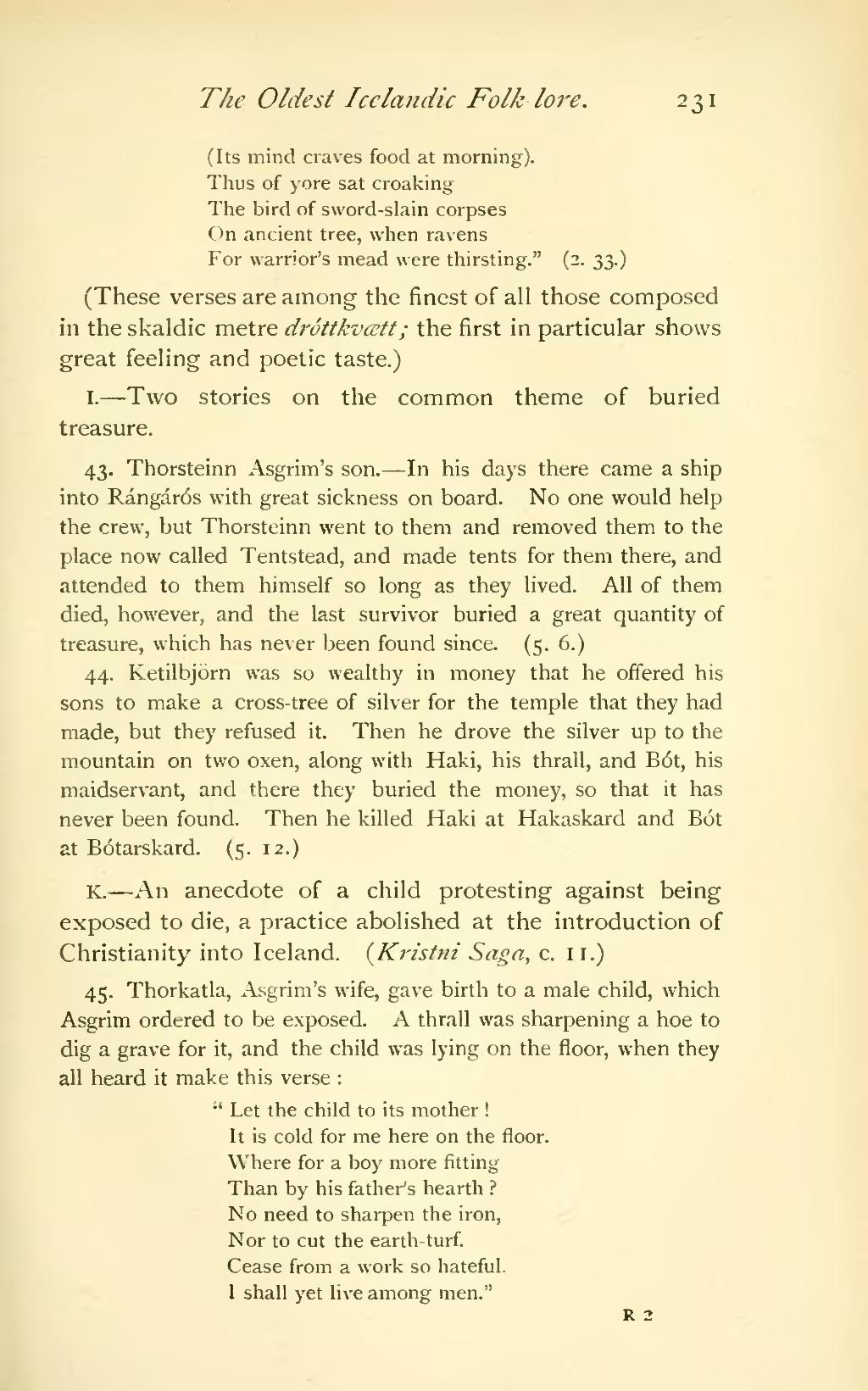(Its mind craves food at morning).
Thus of yore sat croaking
The bird of sword-slain corpses
On ancient tree, when ravens
For warrior's mead were thirsting." (2. 33.)
(These verses are among the finest of all those composed in the skaldic metre dróttkvætt; the first in particular shows great feeling and poetic taste.)
I.—Two stories on the common theme of buried treasure.
43. Thorsteinn Asgrim's son.—In his days there came a ship into Rángárós with great sickness on board. No one would help the crew, but Thorsteinn went to them and removed them to the place now called Tentstead, and made tents for them there, and attended to them himself so long as they lived. All of them died, however, and the last survivor buried a great quantity of treasure, which has never been found since. (5. 6.)
44. Ketilbjörn was so wealthy in money that he offered his sons to make a cross-tree of silver for the temple that they had made, but they refused it. Then he drove the silver up to the mountain on two oxen, along with Haki, his thrall, and Bót, his maidservant, and there they buried the money, so that it has never been found. Then he killed flaki at Hakaskard and Bót at Bótarskard. (5. 12.)
K.—An anecdote of a child protesting against being exposed to die, a practice abolished at the introduction of Christianity into Iceland. (Kristni Saga, c. ii.)
45. Thorkatla, Asgrim's wife, gave birth to a male child, which Asgrim ordered to be exposed. A thrall was sharpening a hoe to dig a grave for it, and the child was lying on the floor, when they all heard it make this verse:
"Let the child to its mother!
It is cold for me here on the floor.
Where for a boy more fitting
Than by his father's hearth?
No need to sharpen the iron.
Nor to cut the earth-turf
Cease from a work so hateful.
I shall yet live among men."
R2
